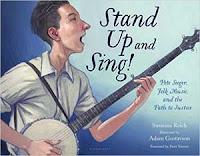The New Situation
My husband is two weeks into the recovery period for shoulder surgery. We're probably looking at close to a month and a half with him having limited to no use of one arm. I wouldn't be surprised to find out it will go longer. I expected time for nursing care and planned to limit my writing to a page or two a day, do some professional reading, make some submissions.
If you think that makes me sound like the pregnant women who believe that while they're on maternity leave they'll write that book they've been meaning to get to or find a cure for cancer, yeah, I couldn't agree with you more.
What's happened is that I didn't realize how much the surgical patient does around here, meaning I'm spending a lot more time doing his share of keeping our ship afloat than I foresaw. We knew an older family member was going to move sometime this year. Then a few days after the surgery we learned that...Surprise!...it's going to happen in the next month or so. Prepping for the move is taking a lot of time right now, and our elder is going to need a lot of support once the move is made. Summer is nearly here, and that's a rough season for work at Chez Gauthier. Additionally, the family is expecting a new baby this fall. The last time we had a new baby around here, between baby support and dealing with older relatives I ended up working only two days a week for a few months. Which, actually, would be a great deal more than I'm doing now. I can look forward to that!
How To Deal With This Situation?
Well, that's the question, isn't it?
Take a work break? I considered taking a work break and focusing on cleaning up the personal life. My theory was that if I could get everyone and everything working well in a month or two, it would be so much easier to get back to work. However, this personal life situation is going to go on, to one degree or another, for the better part of the rest of this year. Letting myself get out of any kind of work routine at all could mean that one day I suddenly realize I'm not a writer anymore.
Doing Less, Like Einstein. Instead, I'm going to focus on just one thing, like Einstein did. And what I'm going to focus on is my writing portfolio.
Planning My Time Around My Writing Portfolio
I have material ready to submit. One of my seven goals for this year is to submit completed work. My theory (like Einstein, I have a theory!): submitting work I've already completed will require less intense, long-term concentration than generating new work. So until family responsibilities let up, I'm purging my other goals, and concentrating on submitting.
That still means I'll have to knock off a number of objectives/tasks:
- Research markets (I've already done some of this. I have a list somewhere.)
- Determine which manuscripts can go where
- Generate cover e-mails, maybe a (blech) synopsis. (I have some new material stashed somewhere to help with this)
- Keep track of submissions
Evil Gail
My husband's surgery was relatively short, and he was sent out of the surgical center before noon to suffer at home. So I stayed in the waiting room that morning, and while I was there, I drafted two reader response blog posts and finished reading a professional magazine.
I'm not bragging. I feel kind of bad about working under those conditions. Not as bad as I feel about going window shopping while I was waiting for my son to finish his day surgery ten years ago, but guilty nonetheless.
I wasn't the only evil wife there, though, if that's any kind of defense. I know for a fact that another woman left and went grocery shopping while her husband's shoulder was being hacked up, because she told me so. Somehow scavenging for food for the family while a mate is enduring a physical ordeal seems noble while nursing a career under the same circumstances, not so much.
Honest to God, I also brought food. And I ate it.
Oh, well, you know what the Zenny ones say--Dwelling on the past can only lead to unhappiness. Sure don't want that.

















